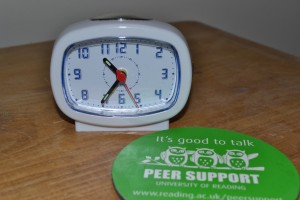It’s an all too familiar story. We have the best of intentions to get cracking on that assignment and then, having tidied up our room, made that all important trip to the gym and yes of course…”I can’t start this before sending those urgent emails and replying to texts” – suddenly it’s well after 10pm and there are no words in your Word document.
It’s so draining sitting in front of your laptop all day and achieving little. The task can hang over you, spoiling your fun and making you feel guilty for not having done it by now. So…how do we conquer procrastination, ignite our enthusiasm and recapture our ability to concentrate?
Helpful tips:
Try meeting a study buddy from your course or form a group. Sit down together and chat about the topic, throw some ideas around and answer each other’s questions. Soon enough confusing aspects become clear and you will feel more motivated.
Galvanise your inspiration, begin with the part of the subject that you find most interesting, then add the other bits around it.
Break down the assignment into short, bite-sized chunks that are easier to manage. Then give yourself limited timed targets in which to complete them. In this time let nothing distract you, just focus on the task and enjoy the distractions in your breaks – which brings us on to…
Take regular breaks to recharge your batteries and improve your ability to concentrate.
Calling all perfectionists out there – Good enough is good enough. Waiting for that light-bulb moment so that it’ll be ‘perfect’, can block you from getting started. You’re not writing the definitive work on the subject…yet! Just get writing and you can edit it at the end.
Make your targets SMART: Specific; Measurable; Achievable; Realistic; Timeframe. By gaining a sense of satisfaction from completing something in the time boundary, we feel more motivated to do it again another time.
Remember to reward yourself in some way for your accomplishments. It’s encouraging to have something to look forward to, and the ‘procrastinator’ part of you will soon learn that it’s worthwhile to get on with things.
If you would like more support with organising your academic work, please see the Study Advisers’ webpage: http://www.reading.ac.uk/studyadvice which is packed with loads of helpful information.






